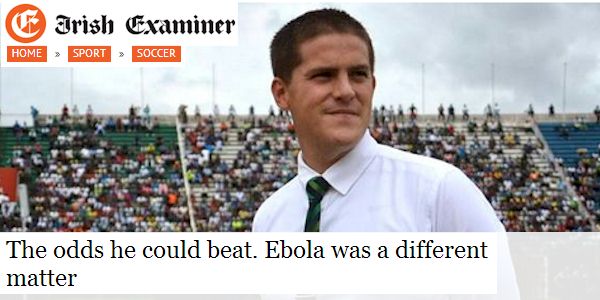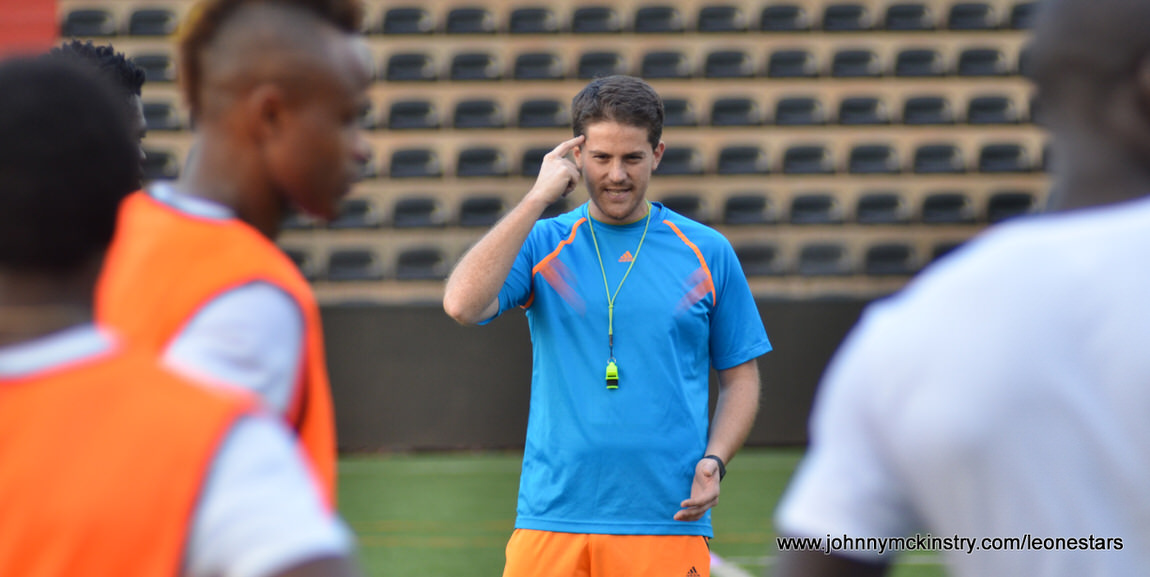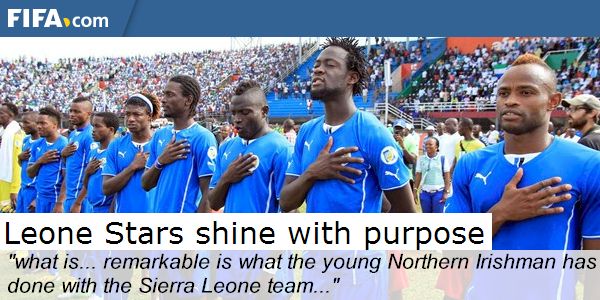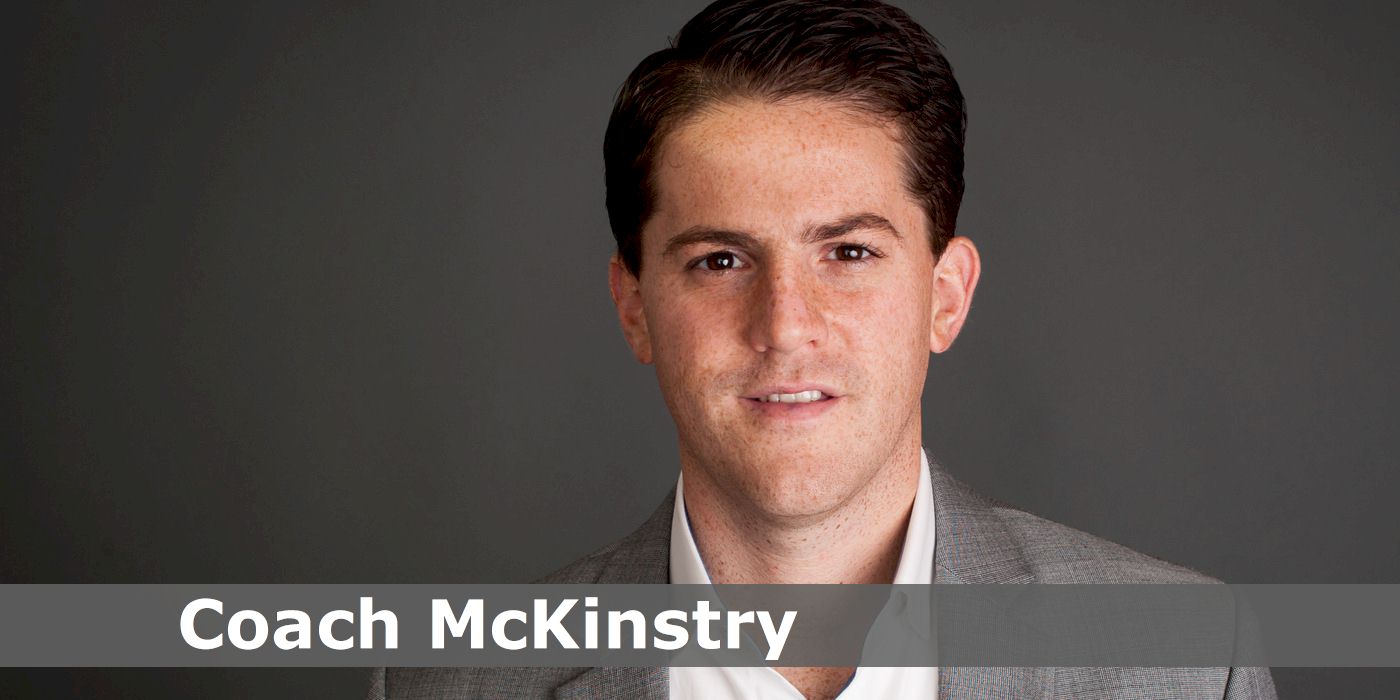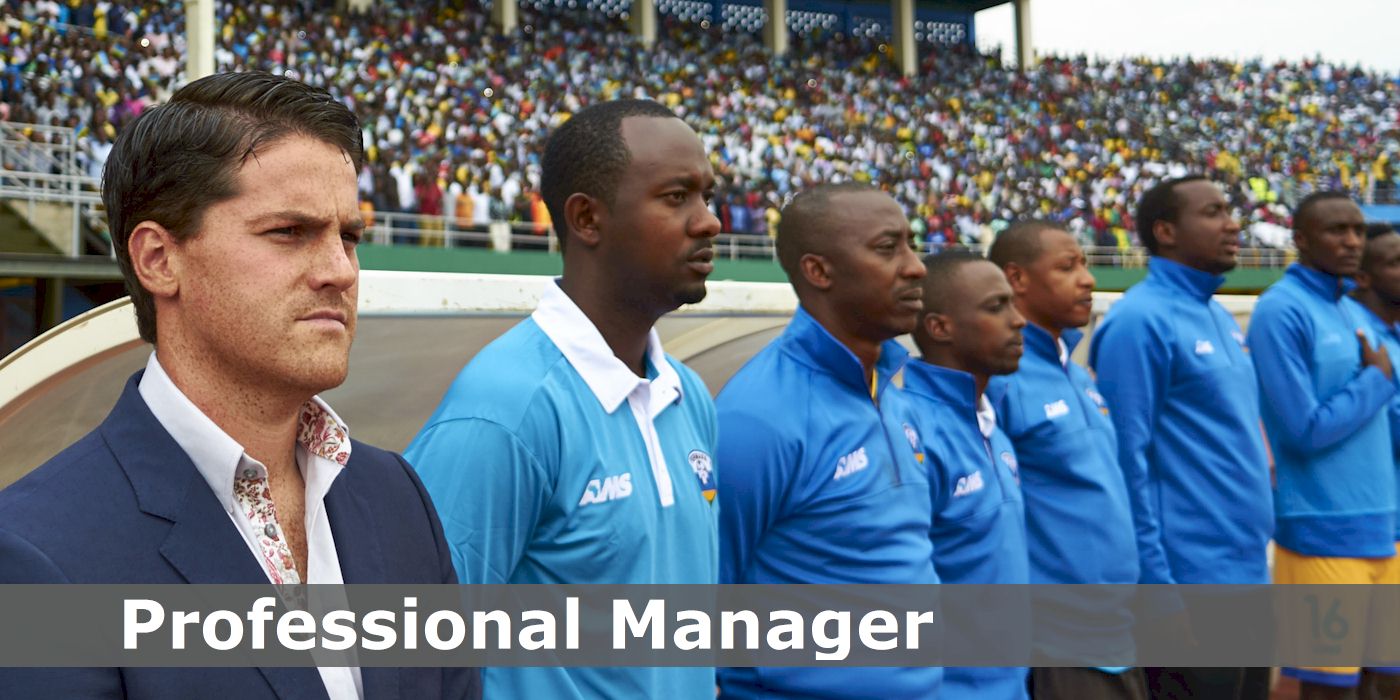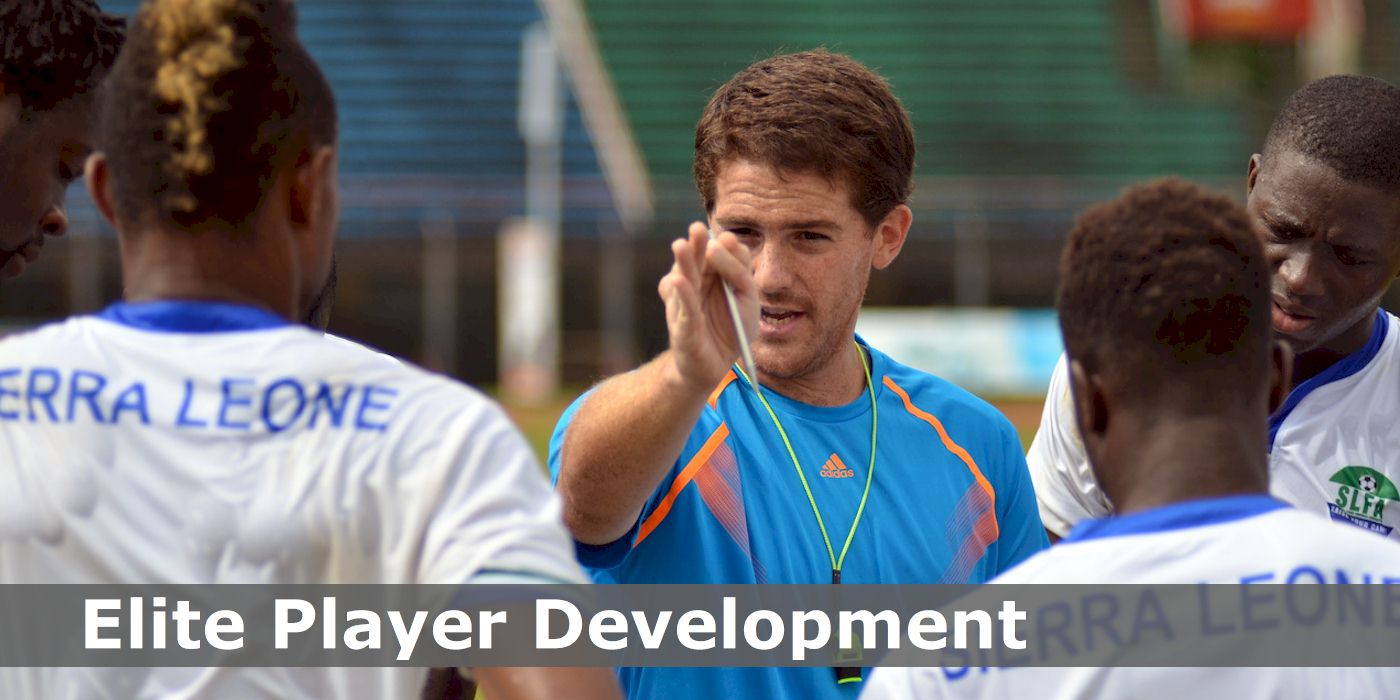"Irishman Johnny McKinstry oversaw Sierra Leone’s rise to a top 50 place on Fifa’s rankings, despite Ebola ravaging the country. Then he was fired."
Published: Irish Examiner, Saturday, October 11, 2014
By Eoin O’Callaghan
Irishman Johnny McKinstry oversaw Sierra Leone’s rise to a top 50 place on Fifa’s rankings, despite Ebola ravaging the country. Then he was fired.
In July, Sierra Leone’s national football team were unbeaten in four games. The timing couldn’t have been better. Immersed in preliminary round action, they were desperately trying to get through to the next stage of qualification for the 2015 African Cup of Nations. They had pushed past Swaziland over two legs, then claimed a victory over Seychelles and were just another 90 minutes away from securing a place in the group stage qualifiers.
Then Ebola happened.
Johnny McKinstry had been in charge for 15 months, overseeing a collection of impressive results. From his six games as manager, the Leone Stars had lost just once. Not bad for a 29-year-old from Lisburn, Belfast.
In late 2009, McKinstry was in New York working as an academy coach with the city’s MLS side, Red Bulls. He got a call that piqued his interest. So he swapped Manhattan for a rural West African village and took over as the Technical Director of the Craig Bellamy Foundation Academy on the outskirts of Sierra Leone’s capital, Freetown. Shortly after, he became the academy manager and when Lars Olof Mattson resigned as coach of the national team, he was given the opportunity of taking temporary charge. McKinstry oversaw three World Cup qualifiers. His record of one win, one draw and one loss was enough to get the job on a full-time basis.
Eyebrows were raised.
“In Africa, the older person is massively respected — there’s that hierarchy that comes with age. So for me to have been given the opportunity ahead of some more senior coaches, that maybe put a couple of noses out of joint. But when it came down to it, I was the most qualified person for the job.”
Over the last 10 years, the plucky, positive and dedicated McKinstry has devoted himself to coaching, picking up a litany of qualifications and passport stamps along the way.
Inevitably, the suspicion that initially accompanied his appointment evaporated. The team began to play good football, score goals and, most importantly, get results. But when the outbreak happened, Sierra Leone went into lockdown, and chaos ensued. McKinstry and his squad struggled with the relevance of what they were doing. With the country on its knees, why would football matter anymore?
“The players are very patriotic. They were concerned about their country. For those who’d grown up at home or the guys forced to leave during the Civil War, seeing another disaster strike the country wasn’t needed or wanted. But football lifts the psyche of a nation and it’s like another religion to the African continent. When the Leone Stars win, the nation is buoyed and lifted so we said we could do our bit and put smiles on people’s faces again. They were just turning the page on a Civil War that ended just over a decade ago and then were hit with this. So as a football team, we felt there was an opportunity to do something positive for the country.”
Things got complicated quickly. McKinstry’s side were set to face Seychelles in the second leg of their qualifier but the island country forfeited the tie, refusing to admit anyone from Sierra Leone for fear Ebola would spread. The Leone Stars received a bye to the group stage but were then faced with an incredibly tough draw that included African heavyweights Ivory Coast and Cameroon.
And there was another problem. The CAF (Confederation of African Football) ruled that Sierra Leone could not play any games at home. A difficult task was becoming near impossible and a ball hadn’t even been kicked.
“If you look at any league in the world, the home team tends to win 50% of the time, 30% are draws and 20% are away wins. In Africa, the home team wins 65% of the time. So, to give up home advantage was a huge burden on us.”
The first group game was away to Ivory Coast in early September. But with a week to go, McKinstry still wasn’t sure if he and his players would be allowed into the country.
There were also in-house logistical issues to contend with. The government sponsors the team so the Ministry of Finance controls the purse-strings. But because of the confusion over whether the game was going ahead or not, the Sierra Leone players still hadn’t received their airline tickets. McKinstry instructed those that could afford it to buy their own.
“80% of the players are playing in decent leagues and were able to do so and got their money back through submission of receipts. I felt if we had any chance of doing anything against Ivory Coast, we needed to have a good amount of training time. The players bought into that and got their credit cards out. But, those who weren’t in that position, who couldn’t afford to get their own tickets because they’re only starting their professional careers, had to wait for their tickets to be sent from Sierra Leone. Those players finally arrived in Abidjan at 8pm on Friday night. We played on Saturday afternoon.”
Incredibly given the circumstances, McKinstry’s side led for an hour before succumbing 2-1. But there wasn’t much time to dwell on what might have been. At 11pm that night, the squad left for Lubumbashi — where they would be playing a ‘home’ qualifier against DR Congo four days later. But Lubumbashi is the second largest Congolese city. After attempting to get the game played at neutral venues in Ghana or Morocco, Sierra Leone were left with no alternative but to play a ‘home’ game against the Congo in the Congo.
“We arrived in our hotel at 10pm on the Monday night having been in transit and in airports for the best part of two days. It was an impossible situation. You could see it from the very start of the game on Wednesday — the lethargic nature of the play."
“The players tried their very best but sometimes what the mind’s willing to do, the body simply can’t anymore.”
Sierra Leone were beaten 2-0. And after successive defeats, McKinstry was under pressure. His stats, however impressive, were rendered meaningless by the volatile nature of African football. Under his management, the team rose to their highest-ever position of 50th in the FIFA world rankings back in August which, at the time, was 16 paces above Ireland. But it mattered little.
In mid-September, after spending a day attending meetings at the FA and the ministry planning the next qualifier against Cameroon, McKinstry got in his car and headed for home.
“I was about to drive over the mountain pass, back to my academy, and my phone pinged with an email. It had the termination notice signed by one of the people from the ministry I had been speaking to two hours earlier. I remember thinking ‘You’re kidding me’.”
Disappointed and exasperated, McKinstry turned his car around and returned to the FA offices. He still wanted to do things properly.
“I finished with a handshake and wished them the best of luck. That’s the way football is. I know the coach gets to pick the team, but directors or ministers or whoever it happens to be picks the coach and that’s the way it works in life.”
Far from disillusioned or dampened, McKinstry is determined. He’s already thinking about the future. Wherever that will take him.
“For me it’s all about the challenge and the opportunity. My long-term ambition has always been to work at the senior professional level day in, day out. I’m open to absolutely anywhere. Could it be in Africa? Absolutely. But it could be in America or back in Europe. For me, if I take something new I want it to be challenging. It keeps you young.”
